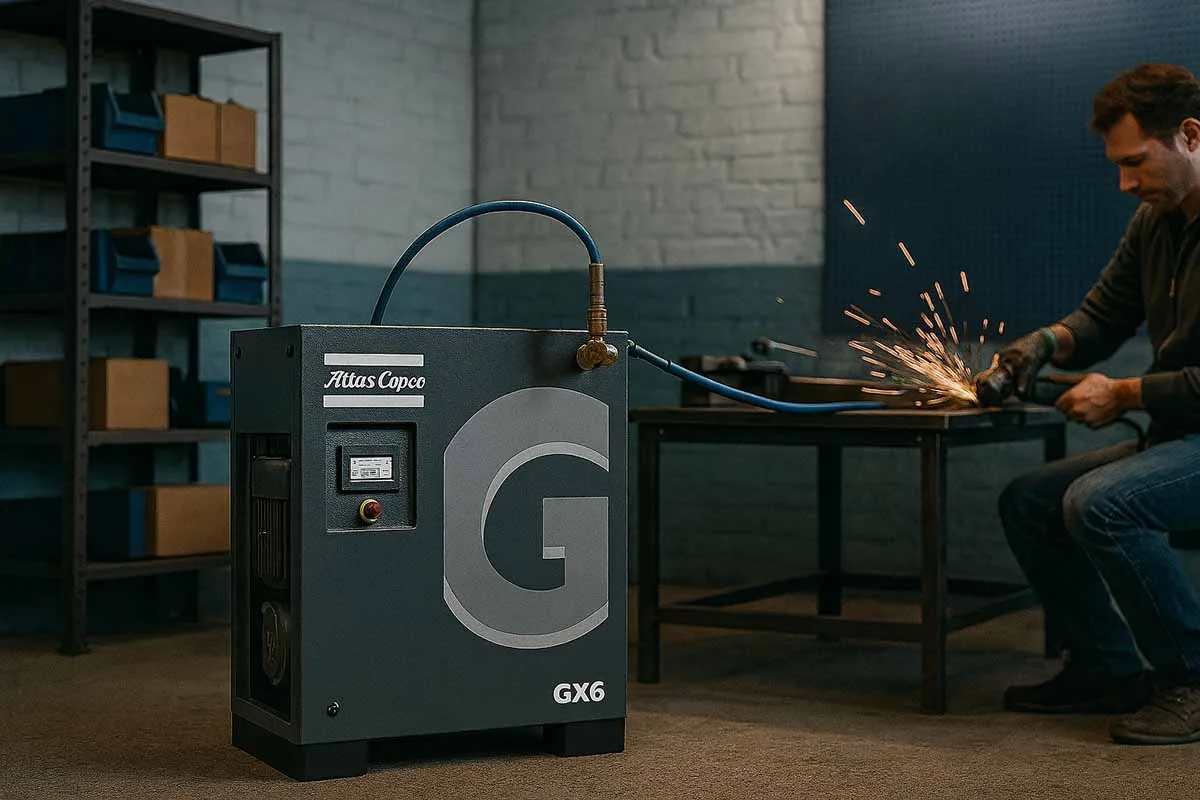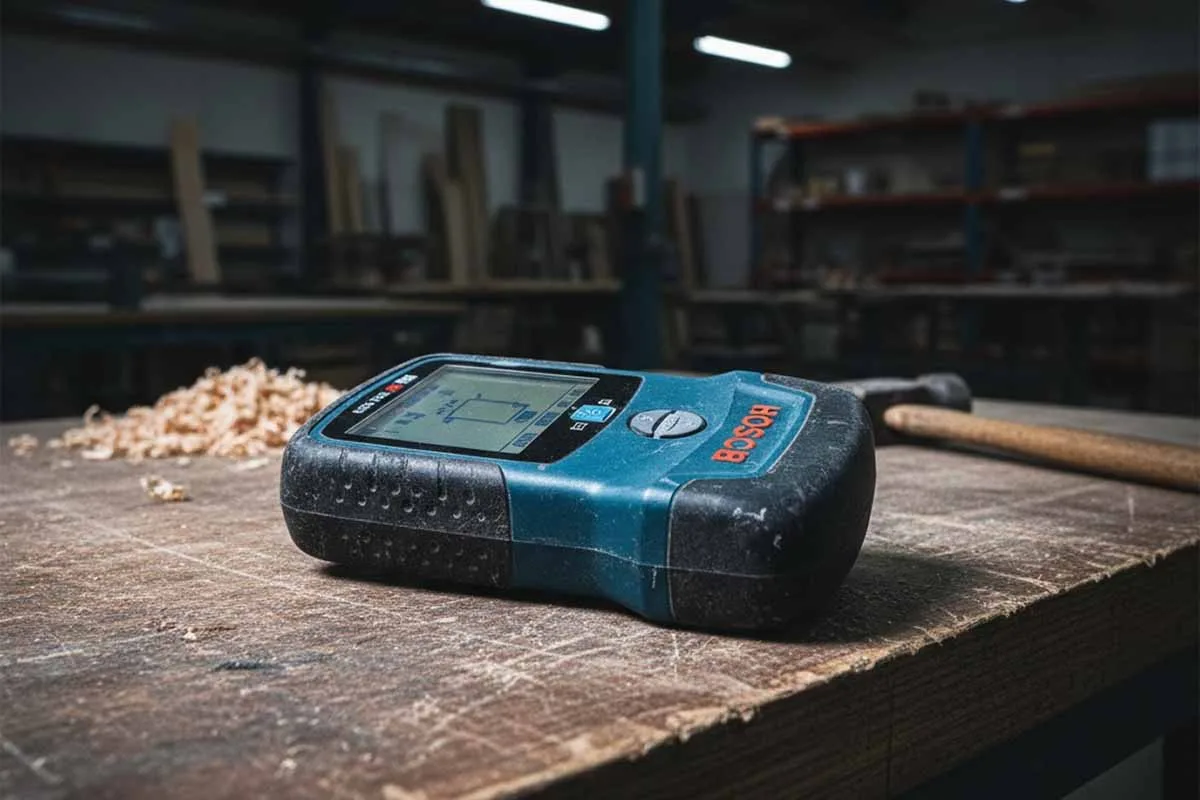Introduction: What Is the GX Series and Who Is It For?
The Atlas Copco GX Series is a line of oil-injected rotary screw compressors engineered for small to medium-sized businesses. Whether you’re running a tire shop, a CNC bay, or a packaging line, the GX Series offers a quiet, efficient, and low-maintenance alternative to piston compressors—without compromising on performance.
Available in power ranges from 2 to 15 kW, the GX Series is designed for continuous duty, easy installation, and minimal noise. It’s the go-to choice for operations that need reliable compressed air without the complexity or footprint of larger industrial systems.
Key Features and Technical Specifications
| Feature | GX 2–7 EP | GX 7–15 EL |
|---|---|---|
| Compressor Type | Oil-injected rotary screw | Oil-injected rotary screw |
| Power Range | 2–7 kW | 7–15 kW |
| Pressure Range | Up to 10 bar | Up to 12.5 bar |
| Free Air Delivery (FAD) | Up to 29.2 cfm | Up to 417 m³/h |
| Noise Level | As low as 62 dB(A) | As low as 65 dB(A) |
| Controller | Start/Stop (GX 2–5 EP), Load/No Load (GX 7 EP) | BASE Controller with icon-based display |
| Installation Options | Floor or tank-mounted | With or without integrated dryer |
| Duty Cycle | 100% continuous | 100% continuous |
| Ambient Temp Tolerance | Up to 46°C / 115°F | Up to 46°C / 115°F |
Pros and Cons
✅ Pros
- Quiet operation: Ideal for indoor use, even near workstations
- Compact footprint: Can be wall-mounted or corner-installed
- Energy efficient: Rotary screw tech beats piston compressors on consumption
- Low maintenance: Easy access to service points, quality components
- Integrated dryer option: Saves space and installation cost
❌ Cons
- Limited smart features: No remote diagnostics or advanced analytics
- Not ideal for large-scale operations: Better suited for small to mid-sized facilities
- Controller limitations: BASE controller lacks touchscreen or cloud integration
Comparison to Alternatives
| Feature | Atlas Copco GX Series | Ingersoll Rand UP Series | Kaeser SX Series |
|---|---|---|---|
| Noise Level | 62–65 dB(A) | ~68 dB(A) | ~66 dB(A) |
| Energy Efficiency | High | Moderate | High |
| Smart Features | Basic | Basic | Sigma Control Basic |
| Installation Flexibility | Excellent | Good | Good |
| Maintenance Access | Front-facing | Side access | Side access |
Verdict: The GX Series leads in quiet operation, installation flexibility, and energy efficiency for small-scale use. Kaeser offers comparable performance, while Ingersoll Rand is more rugged but louder.
Use Cases: Who Should Buy It—and Who Shouldn’t
✅ Ideal Buyers
- Small workshops with intermittent or moderate air demand
- Tire shops, CNC bays, packaging lines
- Facilities with limited space or noise sensitivity
- Buyers upgrading from piston compressors
❌ Not Ideal For
- Large manufacturing plants with high-volume air needs
- Facilities requiring remote monitoring or smart diagnostics
- Buyers needing multi-compressor integration
Atlas Copco GX Series FAQ
Interesting Fact
The GX Series uses Atlas Copco’s patented rotary screw element, which delivers up to 3% more free air delivery than previous models.
Lesser-Known Fact
The GX 2–5 EP models use standard start/stop control, meaning they only consume power when compressed air is needed—ideal for energy-conscious shops.
Further Read
- Atlas Copco
- Atlas Copco GA VSD+ Review: The Compressor That Changed the Game
- Atlas Copco GX Series Review: Compact Power for Small Workshops
- Atlas Copco LZ Series Review
- Atlas Copco GA VSD+ vs Ingersoll Rand R-Series
- Atlas Copco Compressor Buying Guide – Compare LZ, GX & GA VSD⁺ Models
- How to Troubleshoot Common Compressor Problems
- How to Improve Energy Efficiency of Your Compressor
Conclusion: Is the GX Series Worth It?
For small manufacturers and workshop owners looking to upgrade from noisy, inefficient piston compressors, the Atlas Copco GX Series is a smart, compact, and reliable solution. It’s not built for massive industrial loads—but it’s perfect for facilities that value quiet operation, energy savings, and easy installation.
Have you used the GX Series in your shop? Share your experience below and tag a colleague who’s considering a compressor upgrade. Let’s help small manufacturers make smarter choices.





